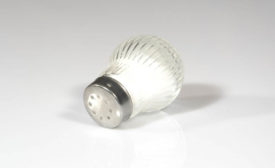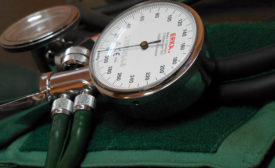Home » high blood pressure
Articles Tagged with ''high blood pressure''
NYC's restaurants must post sodium warnings
State Supreme Court lets rule stand
February 13, 2017
Heart failure on the rise in U.S.
Cardiovascular disease remains leading killer
January 30, 2017
One in three adults don’t get enough sleep
A good night’s sleep is critical for good health
February 23, 2016
Most Americans’ hearts are older than their age
That means higher risk of heart attacks and stroke
September 2, 2015
Never miss the latest news and trends driving the safety industry
eNewsletter | Website | eMagazine
JOIN TODAYCopyright ©2024. All Rights Reserved BNP Media.
Design, CMS, Hosting & Web Development :: ePublishing





